
The challenges and dead ends of delivering aid in government-held areas in Syria
Ahmed Youssef , Agnès Levallois & Joseph Daher

Ahmed is currently the hospital director of the MSF reconstructive surgery hospital in Amman. He is also a former member of a humanitarian organization operating in government-held areas in Syria.
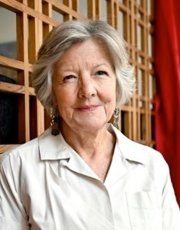
Agnès Levallois is an expert on Middle East issues, particularly on Syria. She is vice-president of the think tank iReMMO (Institut de recherche et d’études Méditerranée Moyen-Orient).
She is also a lecturer at SciencesPo Paris.
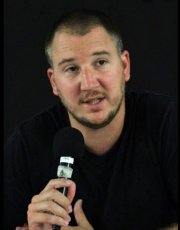
Joseph Daher teaches at the University of Lausanne, Switzerland, and is an affiliate professor at the European University Institute in Florence, Italy, where he co-coordinates the "Syrian Trajectories" research project. He is the author of "Syria after the Uprisings, The Political Economy of State Resilience" (2019) and "Hezbollah, the Political Economy of Lebanon's Party of God". He is also the author of numerous reports and articles in relations to Syria's economy, including the research collection entitled "Structured Chaos: how nonprofits in conflict settings became an economic sector".
This event took place on Wednesday 6 December 2023 at 6.30pm, at MSF headquarters, 34 avenue Jean Jaurès, 75019 Paris.
Crash and iReMMO were pleased to invite you to a round table discussion on the challenges, constraints, and limits of humanitarian aid in Syrian government zones.
Since the start of the war in 2011, Médecins Sans Frontières has been providing aid in Syria only in areas outside government control. Despite our numerous attempts, the authorities always refused our offers of work until the earthquake that struck the north of the country in February 2023. As part of a strategy to normalize diplomatic relations, the government accepted two major donations from the organization to the Syrian Arab Red Crescent (SARC) between February and April 2023. These donations and the ensuing negotiations, which were carried out with the aim of reaching an agreement on MSF's registration in Syria, gave rise to lively discussions within the organization: to what extent can we hope to negotiate an autonomous working space with a government which is responsible for mass atrocities, and which is described by researchers and human rights activists as exercising total control over international aid resources? Is humanitarian aid on the government side still condemned to "finance the Baathist repressive apparatus, [...] punish opponents and reward supporters" of the regime, in the words of Human Rights Watch in 2019? https://www.hrw.org/report/2019/06/28/rigging-system/government-policies-co-opt-aid-and-reconstruction-funding-syria
To answer these questions, we had the pleasure of welcoming Agnès Levallois, vice-president of iReMMO, consultant specializing in the Middle East and lecturer at Sciences Po Paris; Joseph Daher, professor at the European University Institute in Florence where he coordinates the ‘Syrian Trajectories' research project (online); Ahmed Youssef, now director of the MSF hospital in Amman and former member of a humanitarian organization operating in government-held areas in Syria (online); and Zahra Albarazi, Director of Programmes at the Syria Legal Development Programme (online). The meeting was moderated by Michaël Neuman, director of studies at Crash, Médecins Sans Frontières.
In partnership with iReMMO - Institut de recherche et d'études Méditerranée Moyen-Orient

To cite this content :
Ahmed Youssef, Agnès Levallois, Joseph Daher, “The challenges and dead ends of delivering aid in government-held areas in Syria”, 6 décembre 2023, URL : https://msf-crash.org/en/conferences-debates/challenges-and-dead-ends-delivering-aid-government-held-areas-syria
If you would like to comment on this article, you can find us on social media or contact us here:
Contribute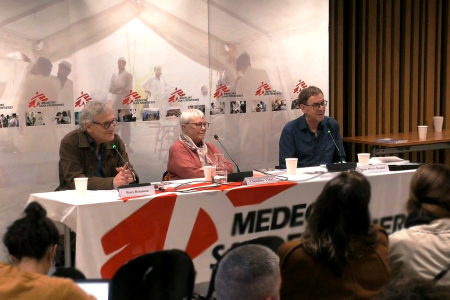 msf
Conference
msf
Conference
Book launch event - Violences extrêmes. Enquêter, secourir, juger République démocratique du Congo, Rwanda, Syrie
11/17/2021 - 06:30 PM 08:30 PM Jean-Hervé BradolWe were very happy to welcome two authors of the book: sociologist (CNRS) and Crash scientific committee member Claudine Vidal, and Jean-Hervé Bradol, doctor, former President of the French section of MSF and current director studies at the Crash, for the launching event of the newly-published book “Violences extrêmes. Enquêter, secourir, juger République démocratique du Congo, Rwanda, Syrie” (Éditions de la Maison des sciences de l’homme, Paris 2021). The event was hosted by Rony Brauman.
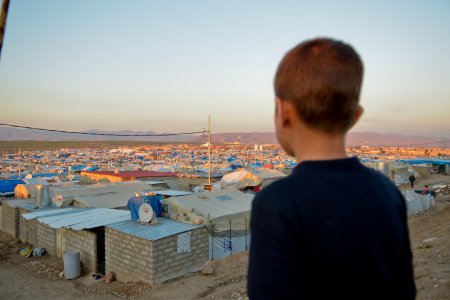 Pierre-Yves Bernard
Opinion
Pierre-Yves Bernard
Opinion
Syria: Breaking the De Facto Humanitarian Embargo against Rebel-Held Areas
03/19/2013 Fabrice Weissman Marie-Noëlle RodrigueWhile European Union members are debating the lifting of arms embargo on Syria, populations living in opposition held territories continue to be severed from desperately needed humanitarian aid. Yet, there is a controversy among aid agencies on the best ways to scale up relief activities in Syria.
Humanitarian Field Practices in the Context of the Syrian Conflict from 2011 to 2018
03/15/2021 Hakim KhaldiThis article was first published in Issue 2, Volume 2 of The Journal of Humanitarian Affairs.
How can a medical humanitarian organisation deliver emergency assistance in Syria when there is nowhere in the country where civilians, the wounded and their families, medical personnel and aid workers are not targeted? Not in the areas controlled by the government, nor in those held by the Kurdish Democratic Union Party (PYD), Islamic State of Iraq and the Levant (ISIL) or the different rebel groups. So what action could be taken, and how? Remotely or on site? At the very least, we had to decipher the diverging political and military agendas, and then adapt, persist or sometimes just give up. In this article, I will present the full range of methods used to acquire knowledge and obtain information as well as the various networks used to carry out this venture. I will also show how Médecins Sans Frontières’ operations became a balancing act, punctuated by episodes of adapting to the various difficulties encountered.
Past events
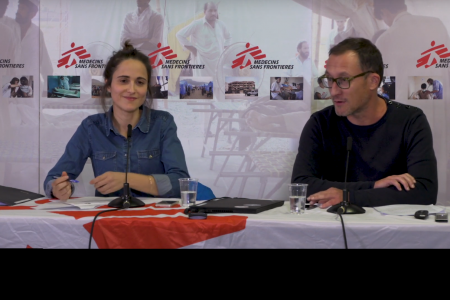 Conference
Conference
Motivations for mass violence: different interpretations
10/03/2019 - 06:00 PM 08:00 PM Nicolas MariotConference – debate, Thursday, 3 October 2019, 6-8pm, 1st floor meeting room at MSF, 8 rue Saint Sabin. Streaming and simultaneous translation into English available.
What turns ordinary men into killers? The CRASH team invited you to a conference – debate with the sociologist and historian, Nicolas Mariot, author of an article entitled « Faut-il être motivé pour tuer? Sur quelques explications aux violences de guerre » (Genèses, n°53, 2003, p. 154-177) and books such as “Face à la persécution. 991 Juifs dans la guerre" (with Claire Zalc, Paris, Odile Jacob, 2010), “Tous unis dans la tranchée ? 1914-1918, les intellectuels rencontrent le peuple" (Paris, Seuil, 2013). Nicolas Mariot presented two different interpretations of motivations for mass violence in the 20th century, drawn from a series of studies and surveys on the subject.
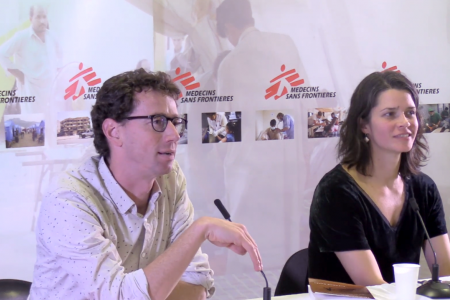 Conference
Conference
Third-Worldism and Sans-Frontiérisme 1954-1988
04/11/2019 - 06:30 PM 08:30 PM Eleanor DaveyEleanor Davey, historian of ideas and humanitarianism, senior lecturer at the Humanitarian and Conflict Research Institute, University of Manchester, discusses her book, Idealism Beyond Borders. The French Revolutionary Left and the Rise of Humanitarianism, 1954-1988, devoted to the intellectual history of sans-frontiérisme and Third-Worldism, in France, from the Algerian war to the early years of Médecins Sans Frontières.
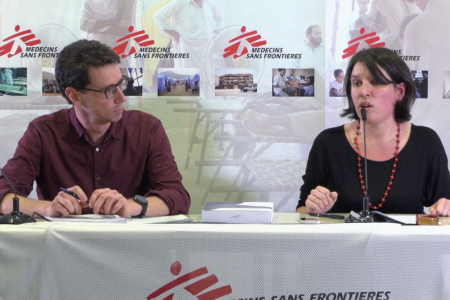 Conference
Conference
Healing foreigners in France: The State and the civil society organisations from the 80s to the 90s
12/17/2018 - 06:00 PM 08:00 PM Caroline IzambertThe CRASH team invited you to the debate-conference “Healing foreigners in France: The State and the civil society organisations from the 80s to the 90s” on Monday 17th of December 2018 from 6 to 8pm, in the 1rst floor room at the 8 rue Saint-Sabin. We hosted Caroline Izambert, who recently defended, at the EHESS, her PhD thesis focusing on the foreigners’ access to healthcare in France. Her title: “Heal foreigners?” The State and the civil society organisations for the health coverage of the poor and foreigners in France from the 1980s to the present day.
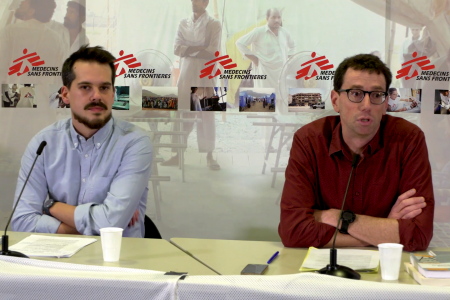 Conference
Conference
Borders and Hospitality
11/26/2018 - 06:00 PM 08:00 PM Benjamin BoudouConference/debate with Benjamin Boudou, political scientist and researcher at the Max Planck institute.
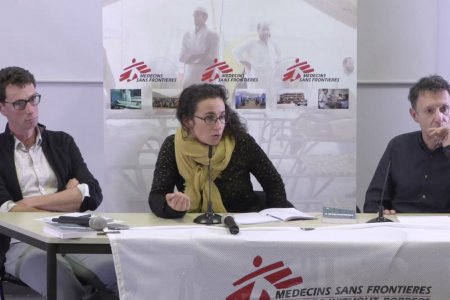 MSF-Crash
Conference
MSF-Crash
Conference
Immunization: new perspectives on vaccines - Conference with Lise Barnéoud
12/05/2017 - 06:00 PM 08:00 PM Lise BarnéoudWho profits from vaccination? Individuals? Society? Companies? Is vaccination efficient? Is it dangerous? Profitable? What are the factors influencing public opinion in this domain? Lise Barnéoud, science journalist and author of Immunisés ? Un nouveau regard sur les vaccins, has engaged in an investigation revealing multiple - and sometimes contradictory - realities observed in the French vaccination sector. She has carried out her investigation from three distinct viewpoints: the one of a mother who needs to decide whether to vaccinate her children or not; of a journalist leading an enquiry; and of a scientist analyzing how facts are built.
Lise Barnéoud was a Crash guest speaker at a conference on vaccination held on December 5, 2017. A discussion with Epicentre, Crash and the MSF Medical Department allowed us to exchange views on vaccinal policy, which remains a cornerstone of MSF operations and a recurring subject of discussion and controversy.
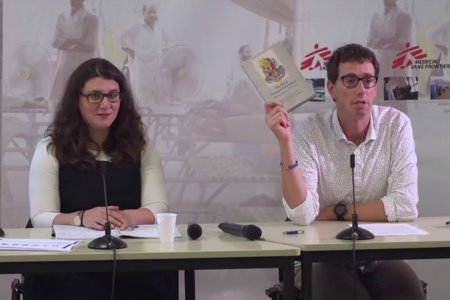 MSF
Conference
MSF
Conference
Humanitarian anthropology : conference with Sharon Abramowitz
10/23/2017 - 06:00 PM 08:00 PM Sharon AbramowitzSharon Abramowitz is an anthropologist and a visiting researcher at the Department of Anthropology at Rutgers University, co-editor of recently published Medical humanitarianism. Ethnographies of practice. She has devoted much of her work to responding to epidemics - most recently in Ebola, and in West Africa, Liberia in particular.
During the conference organized by MSF-Crash on 23 October 2017, she discussed the contribution of medical anthropology to humanitarian action as well as her latest book and most recent projects.
Période
Newsletter
Subscribe to our newsletter to stay informed about our latest publications. Interested in a specific author or thematic? Subscribe to our email alerts.
